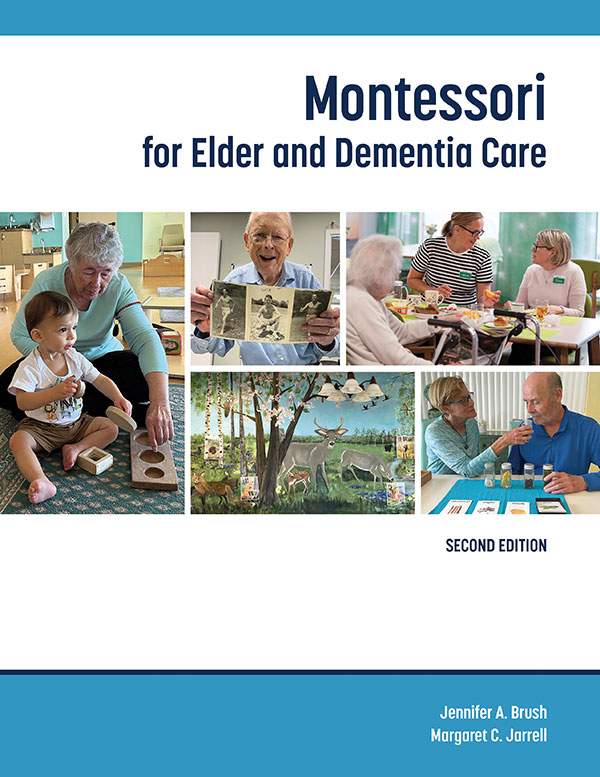Comprehensive Dementia Care Charlotte: Supporting Families with Caring Solutions
Comprehensive Dementia Care Charlotte: Supporting Families with Caring Solutions
Blog Article
Exactly How to Offer Individualized and significant Mental deterioration Treatment
The provision of individualized and purposeful dementia treatment calls for a nuanced understanding of each person's distinct history and choices. Care approaches must be tailored to engage the individual in methods that reverberate with their previous experiences, thereby promoting psychological links and enhancing general health.
Comprehending Dementia Individuality

Treatment carriers should examine cognitive abilities, emotional states, and behavior patterns to produce tailored treatment strategies. This may include adjusting communication designs, using acquainted routines, and utilizing significant activities that reverberate with the person's past experiences. For instance, engaging a person with a passion for music via musical activities may evoke positive memories and improve emotional wellness.
Additionally, understanding originality cultivates a compassionate approach that values the dignity and freedom of those living with mental deterioration. It encourages caregivers to listen actively, observe behavioral signs, and remain versatile in their caregiving strategies (charlotte care home). By prioritizing originality, caretakers can not just enhance the quality of life for those with dementia however additionally develop a much more extensive understanding of their distinct viewpoints, ultimately leading to more efficient and empathetic treatment
Building Trust and Relationship
Establishing count on and connection is fundamental in mental deterioration care, as it develops a helpful and safe setting for individuals impacted by the condition. Building these links requires constant, caring interactions that prioritize the requirements and sensations of the person. Caretakers need to approach interactions with compassion, identifying the one-of-a-kind difficulties faced by those with dementia, consisting of memory loss, complication, and psychological distress.
Caretakers must make use of clear, easy language and non-verbal cues to communicate understanding and assistance. Energetic listening demonstrates regard and recognition, allowing people to reveal themselves without fear of judgment.
Familiarity with everyday activities and caregivers advertises a sense of security, making it possible for people to feel even more at simplicity. By doing so, caregivers reinforce the person's identity, promoting dignity and respect, eventually leading to stronger, more significant partnerships in the context of mental deterioration treatment.
Tailoring Tasks and Involvement
Engaging individuals with mental deterioration with customized tasks can significantly boost their top quality of life and promote a much deeper link between caregivers and those in their treatment. Customization is crucial, as it recognizes the special histories, interests, and abilities of each individual. Tasks ought to be created to promote cognitive features, promote physical motion, and motivate social communication, all while continuing to be delightful and fulfilling.
To customize tasks effectively, it is crucial to assess the individual's choices and cognitive capabilities. Some may locate joy in horticulture, while others may value songs or art. Easy, acquainted tasks can evoke favorable memories and provide a feeling of success. Additionally, including aspects of regimen can offer comfort and stability, allowing individuals to engage with activities more confidently.
Caregivers can improve interaction by taking part together with the the original source individuals, cultivating an interactive and supportive setting. It is likewise important to continue to be flexible and versatile, adjusting activities as required based on the individual's power levels and state of mind. Eventually, significant engagement via tailored tasks not only uplifts people with dementia however also enriches the caregiver relationship, promoting common pleasure and understanding.
Reliable Communication Strategies
Effective interaction is important in mental deterioration treatment, as it fosters a feeling of link and understanding in between caretakers and individuals experiencing cognitive decline. Utilizing effective interaction methods can considerably boost the top quality of interactions and decrease disappointment for both celebrations.
First of all, making use of basic, clear language is essential. Brief sentences and familiar words aid individuals comprehend and respond better. Furthermore, keeping a tranquility and favorable tone can create a reassuring environment, which is important for individuals that might feel baffled or nervous.
Non-verbal communication plays a substantial function too. Caretakers ought to take notice of body movement, facial expressions, and gestures, as these signs can usually convey greater than words - memory care charlotte. Establishing eye call and making use of gentle touch can additionally reinforce connections and share compassion
Active listening is another essential component. Caregivers ought to be attentive, enabling people to share themselves fully, also if their speech is unclear or fragmented. This lionizes and motivates a lot more open communication.
Last but not least, validating experiences and feelings is crucial. Recognizing emotions, no matter their basis in truth, can supply comfort and reinforce the caregiver-individual relationship, advertising an extra supportive environment.
Supporting Family Involvement
Family members involvement plays a significant duty in the general treatment and assistance of individuals with dementia. Involving relative develops a collective atmosphere that enhances the top quality of treatment, promotes emotional connections, and makes certain that the special demands of the individual are fulfilled. Relative typically possess indispensable insights into the person's history, choices, and habits, which can be vital this in creating individualized care techniques.

In addition, household members can be urged to take part in everyday care tasks, such as engaging in purposeful conversations or helping with acquainted routines. This not just aids endure the person's feeling of identification yet also enhances domestic bonds. Inevitably, by fostering an inclusive technique that values family contributions, care companies can boost the total experience for both individuals with dementia and their loved ones.
Conclusion
In verdict, providing customized and significant dementia treatment requires a comprehensive understanding of each individual's special history and preferences. Collectively, these methods add to boosted top quality of life for people with mental deterioration.
The provision of significant and tailored dementia care requires a nuanced understanding of each individual's one-of-a-kind history and choices. By doing so, caregivers strengthen the person's identification, advertising dignity and respect, inevitably leading to more powerful, a lot more meaningful partnerships in the context of mental deterioration care.
Involving people with mental deterioration with tailored activities can significantly improve their top quality of life and foster a much deeper connection in between caregivers and those in their treatment.Household involvement plays a significant duty in the general treatment and support of people with dementia. Eventually, by fostering an inclusive approach that values household contributions, care suppliers can enhance the general experience for both individuals with dementia and their enjoyed ones.
Report this page